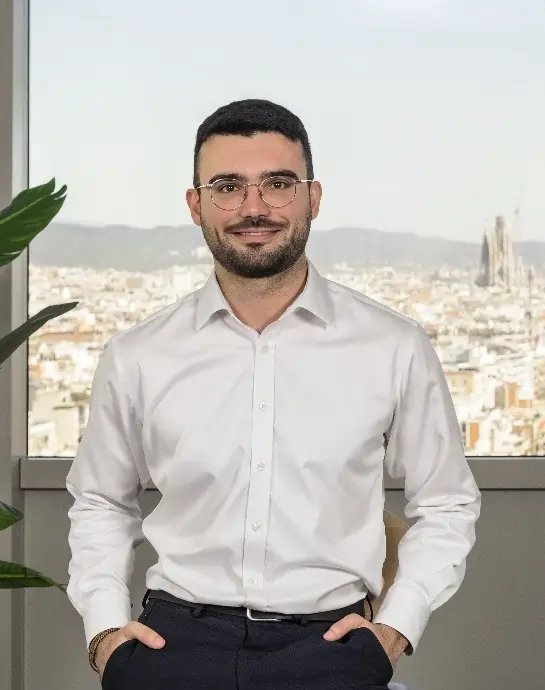How private banks can survive the neo-broker revolution


By Joaquim De la Cruz, co-founder and CEO of Flanks
The revolution in wealth management is already here, at least for advisors anyway. MiFID 3 is coming to Europe, building on the transformative changes that began a decade ago. Suddenly, advisory is becoming even more central rather than a nice-to-have. As a client, if you walked into a bank and asked for an off-the-shelf product, pre-2014 would have seen you walk straight back out with it. Now, under this regulation, banks need to offer advisory-led services rather than pure product-based services; it’s no surprise that advice is now a huge chunk of the dealflow in private banks.
What is advisory? In simple terms, it means taking care of the client. It goes beyond the simple assessment of “is this product right for my client?”. It’s holistic. It’s the life factors, the financial goals of that person that walks into your bank. That human connection has real power - the majority of people won’t change advisors in their lifetime.
This relationship-based approach couldn't come at a more critical time: we're about to witness one of the largest wealth transfers in history, with an estimated $85 trillion moving from baby boomers to the next generation. This new generation of wealth holders brings completely different expectations to the table. They're digitally native, more educated about financial markets, but paradoxically in greater need of guidance given how complex (and instantaneous) investment opportunities are in 2025. The challenge for private banks isn't just managing this wealth transfer - it's evolving their advisory approach to serve a generation that expects both digital convenience and human expertise.
Technology is not the enemy - manual tasks are
Data is the fuel for the wealth management industry. It’s also the biggest weak point in the industry. When we look at what's happening with banks now, if you have a complex portfolio, say 5-6 different data sources, wealth managers will spend the majority of their time gathering and reconciling financial data. This isn't sustainable, or scalable.
Think about what this means for a wealth manager trying to serve their clients. How can you offer real-time advice when you're spending most of your day just updating spreadsheets? The data challenge has become even more complex with the rise of new investment options - now clients have money spread across traditional banks, neo-brokers, crypto exchanges, and private equity investments. Each new asset class adds another layer of manual work.
The industry has tried to solve this before. The first wealth tech wave of digitisation came about 10-15 years ago, but now we're seeing something different. The second wave of wealth tech isn't just about digitising processes - it's about using AI to actually make sense of all this data automatically. At Flanks, we're pushing this further. We can connect to everything - main exchanges, private equity, real estate.. whatever asset class you need. But the technology itself isn't the point - it's what it enables.
My favourite analogy is personal trainers versus going to the gym. Sure, you can go to the gym on your own every day, do your spinning class, whatever. That's like having trading tools and market data. But when things get complicated - like during Covid when markets went crazy - that's when you need that trainer, that expert who knows your specific situation. The technology should handle the routine work so the human can focus on what matters: helping clients make smart decisions when it really counts.
The future is about trust, not just tools
The banks aren’t blind to this - some of them are building neo-broker services inside their own banks. This is great, because you can have the best tools, you can buy, sell, you can play with your wealth, but hey, you have a button, you have a phone that you can call your advisor and say help me.
The thing is, if you automate most of these low-level manual tasks, bankers can invest more time in relationships. I see it in my own networks - bankers are now spending more than 60% of their time actually talking with clients, thinking how to help them. This is instead of just doing operational tasks, like asking “who I can get the data from?”, or “how can I update this Excel spreadsheet?”. This is what changes everything.
Tech is important but, at the end of the day, you need this extra mile of human relationship - particularly in the wealth management industry. We are seeing this huge wealth transfer coming, and yet the level of financial education in Europe is very, very low in general. Then you mix this with all these new investment options, and it's getting more complex, not less.
That's why I really believe the banks that win are not going to be the ones just offering zero commission trading or just having good advisors. They need both things - the technology to handle all this complex data automatically, and the human expertise to actually help clients make sense of everything. If you can automate 80% of the manual work, then your advisors can focus on what matters - building trust with the next generation of wealth.
Look, neo-brokers are not the enemy. They are showing us what's possible with technology. But the real revolution in wealth management isn't just about better tools or lower fees - it's about using technology to make real advisory services available to more people. The cornerstone of this transformation is data - clean, accessible, and actionable data that enables meaningful insights and personalised advice. Without solving the fundamental data challenges, wealth managers remain trapped in administrative tasks rather than delivering their true value. Regulation will continue to enforce this change, but it’s up to us to build the tools to help free up those resources so that the human beings in the industry can focus on building what they do best: trust.
Joaquim De La Cruz Bio
Joaquim De La Cruz, entrepreneur and accomplished software engineer from the Universitat Politècnica de Catalunya, has over eight years of experience in technology and data, with a focused dedication to wealth management over the last five years. Throughout the past decade, Joaquim has contributed to founding several tech projects, including Flanks, his latest venture launched in 2019.
As CEO of Flanks, he leads the company’s aim to modernise and automate the wealth management industry. In May 2024, Joaquim earned a spot on Forbes' 30 Under 30 list for Europe, being the only Spaniard in the finance category. While leading Flanks, he has helped the company earn recognition from several prestigious awards and top industry players, including LinkedIn's Top Startups in Spain and Barcelona for September-October 2024, and selection by Google for startups selected for their AI-first program in September 2024.

Advisory refers to a holistic approach in banking that focuses on understanding a client's life factors and financial goals, rather than just selling products.
Wealth transfer is the process of passing on assets from one generation to another, often seen during significant life events like inheritance.
MiFID 3 is a European regulation aimed at enhancing the transparency and efficiency of financial markets, particularly in investment services.
Explore more articles in the Banking category











